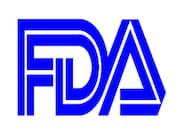Elzonris approved to treat BPDCN; Ultomiris approved for paroxysmal nocturnal hemoglobinuria
MONDAY, Dec. 24, 2018 (HealthDay News) — Two drugs have been approved by the U.S. Food and Drug Administration for the treatment of rare blood diseases, the agency announced Friday.
Elzonris (tagraxofusp-erzs) infusion was granted the first approval for the treatment of blastic plasmacytoid dendritic cell neoplasm (BPDCN) in adults and children aged 2 years and older. Researchers investigated the efficacy of Elzonris in two patient cohorts in a single-arm clinical trial. Of the 13 patients with untreated BPDCN in the first cohort, seven (54 percent) achieved complete remission (CR) or CR with a skin abnormality not indicative of active disease (CRc). In the second cohort of 15 patients with relapsed or refractory BPDCN, one patient achieved CR and one achieved CRc.
Commonly reported side effects of Elzonris included capillary leak syndrome, nausea, fatigue, peripheral edema, fever, chills, and weight increase. Common laboratory abnormalities included decreased lymphocytes, albumin, platelets, hemoglobin, and calcium and increased glucose and liver enzymes. The FDA advises health care providers to monitor liver enzyme levels and to monitor for signs of intolerance.
On Friday, the FDA also approved Ultomiris (ravulizumab) injection, a long-acting complement inhibitor that prevents hemolysis, to treat adults with paroxysmal nocturnal hemoglobinuria (PNH). The injection requires treatment every eight weeks rather than every two weeks as necessary with eculizumab, the only other currently approved treatment for the disease.
Ultomiris was shown to be noninferior to eculizumab in a clinical trial of 246 patients previously untreated for PNH. In a second clinical trial, 195 patients with PNH who had been treated with eculizumab for at least six months were randomly assigned to treatment with Ultomiris or to continue eculizumab. Ultomiris was noninferior to eculizumab based on clinical measures including hemolysis and avoiding transfusion. Commonly reported side effects included headache and upper respiratory infection. The FDA advises providers to be cautious in administering Ultomiris to patients with other systemic infections. The prescribing information also includes a Boxed Warning about the risk for life-threatening meningococcal infections and sepsis.
More Information – Elzonris
More Information – Ultomiris
Copyright © 2018 HealthDay. All rights reserved.








